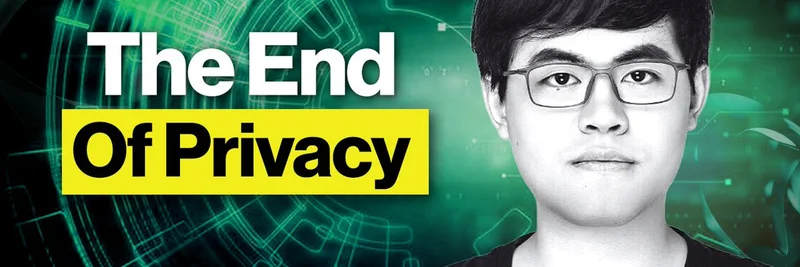In the fast-evolving world of blockchain and AI, privacy is becoming a hot-button issue. Recently, The Rollup podcast dropped a fascinating episode featuring Hang Yin, CEO of Phala Network, titled "The End of Privacy." Shared via a tweet from @therollupco, this conversation dives deep into how AI's rapid advancement is challenging our notions of data security, especially in decentralized ecosystems.
Hang Yin, also known as @bgmshana on X, co-founded Phala Network to tackle privacy head-on in the blockchain space. Phala uses Trusted Execution Environments (TEEs)—think of them as secure, isolated compartments in hardware that keep data private even during processing. In the podcast, available on YouTube and Spotify, Yin explores the "AI supercycle," a term referring to the explosive growth and integration of artificial intelligence across industries.
AIブームにおけるプライバシーの重要性
As AI models get smarter, they crave more data, often personal and sensitive. Yin argues that without robust privacy measures, we're heading toward a world where anonymity is a relic. For blockchain practitioners, this hits close to home. Public ledgers like Ethereum make transactions transparent, which is great for trust but terrible for privacy. Imagine trading meme tokens where every move is traceable—sybil attacks, front-running, or even doxxing could become commonplace.
Phala Network steps in with privacy-preserving smart contracts. These allow developers to build apps where data stays confidential, even from node operators. Yin highlights tools like their LLM (Large Language Model) that's end-to-end encrypted and verifiable on Ethereum. It's a game-changer for AI agents in DeFi or meme communities, ensuring computations happen securely without exposing user info.
ミームトークンとの関連
Meme tokens thrive on community hype and viral moments, but privacy lapses can kill the fun. Think about wallet tracking tools that reveal whale movements, potentially manipulating markets. Yin's discussion ties into this by showcasing how technologies like TEEs and zero-trust computing can protect meme ecosystems. For instance, confidential AI could enable private voting in DAOs or secure meme launches without leaking strategies.
The episode, powered by NEAR Protocol, also touches on broader implications: from regulatory pressures to the rise of privacy-focused chains. Yin emphasizes that in the AI era, projects ignoring privacy risk obsolescence.
ブロックチェーン愛好家への主要なポイント
- AIのプライバシー脅威: As AI integrates with blockchain, data exposure risks skyrocket. Solutions like Phala's TEEs offer a shield.
- ミームトークンの関連性: Privacy tech can prevent market manipulations and enhance user trust in volatile meme spaces.
- 今後の見通し: The "end of privacy" might be exaggerated, but without innovation, it's a real concern. Phala's work points to a more secure path.
If you're into meme tokens or blockchain tech, this podcast is a must-listen. It not only breaks down complex ideas but also inspires ways to stay ahead in the privacy game. Check out the full episode and let us know your thoughts—how do you see AI impacting meme culture?


